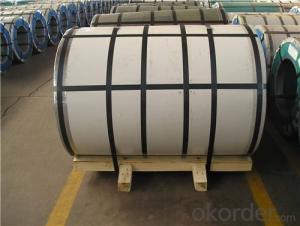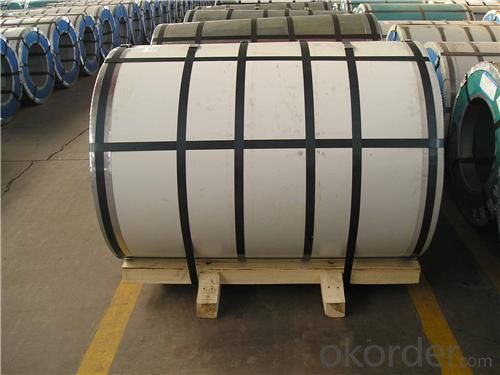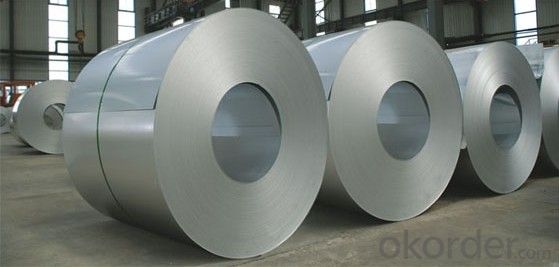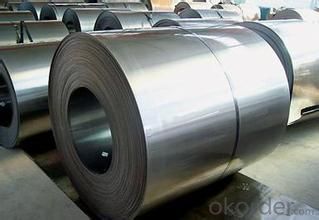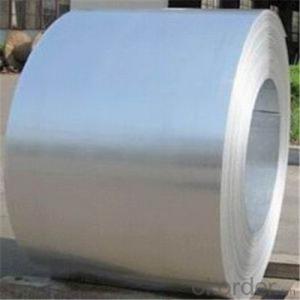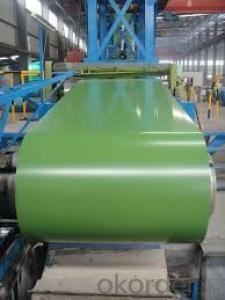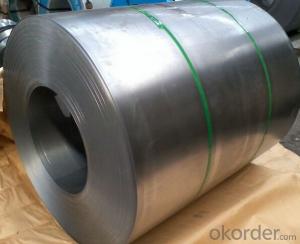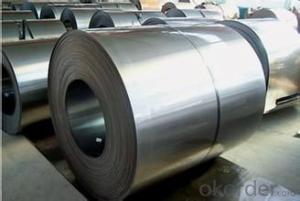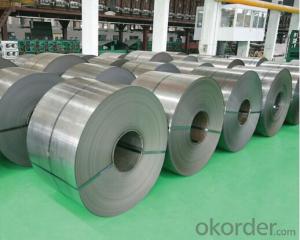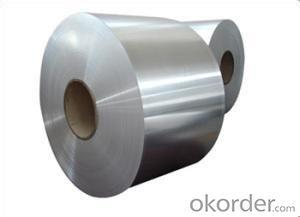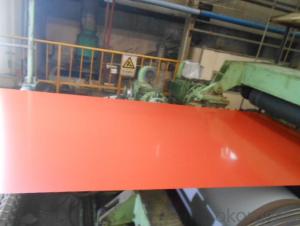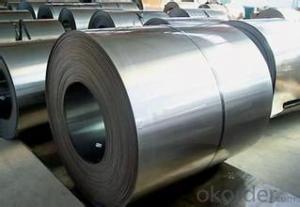High Quality of Cold Rolled Steel Coil from China
- Loading Port:
- Tianjin
- Payment Terms:
- TT OR LC
- Min Order Qty:
- 100 m.t.
- Supply Capability:
- 10000 m.t./month
OKorder Service Pledge
OKorder Financial Service
You Might Also Like
1.Structure of Cold Rolled Steel Description:
The raw material of cold rolled steel coil/sheet is high quality hot rolled product, and after pickling continuous rolling, degreasing, annealing,skin pass,slitting and cut to length line etc. Along with it many kinds of new technology and new process of global cold rolling production have been applied. Therefore the quality of the goods could be guaranteed. The product is widely used in outdoor and interior decoration, furnishing manufacturing, home appliance, automobile etc.
2.Main Features of the Cold Rolled Steel:
• Excellent process capability
• Smooth and flat surface
• Workability, durability
• Excellent heat resistance performance
• High strength
• Good formability
• Good visual effect
3.Cold Rolled Steel Images
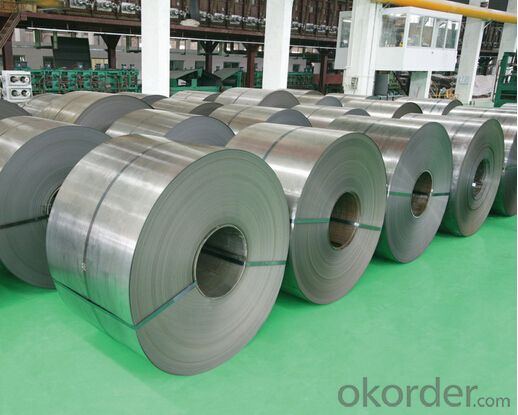
4.Cold Rolled Steel Specification
Standard:AISI,ASTM,DIN,GB,JIS,JIS G3302 ASTM 653M EN10142
Grade: Q195~Q345
Thickness: 0.16mm~1.5mm,0.16-1.5mm
Width: 1250,600-1250mm
Coil weight:3-12 MT
Coil ID:508/610mm
Chemical composition:
C | Si | Mn | Cr | Ni | P | S |
0.150 | 0.476 | 11.231 | 12.50 | 0.900 | 0.039 | 0.010
|
5.FAQ of Cold Rolled Steel
We have organized several common questions for our clients,may help you sincerely:
1.How about your company?
A world class manufacturer & supplier of castings forging in carbon steel and alloy steel,is one of the large-scale professional investment casting production bases in China,consisting of both casting foundry forging and machining factory. Annually more than 8000 tons Precision casting and forging parts are exported to markets in Europe,America and Japan. OEM casting and forging service available according to customer’s requirements.
2.How to guarantee the quality of the products?
We have established the international advanced quality management system,every link from raw material to final product we have strict quality test;We resolutely put an end to unqualified products flowing into the market. At the same time, we will provide necessary follow-up service assurance.
3. How long can we receive the product after purchase?
Usually within thirty working days after receiving buyer’s advance payment or LC. We will arrange the factory manufacturing as soon as possible. The cargo readiness usually takes 15-25 days, but the shipment will depend on the vessel situation.
- Q: Which steels were origianally designed to be used to cut and shape metals and other materials?- alloy steel- high carbon steel- carbide steel- tool steelthanks
- Strength of metals is normally measured by the tensile strength as the main measure although this is not the only property as hardness is another big factor. Basically, iron is soft and steel is hard. Plain iron is stretchy and does not corrode quickly, whereas steel is much stiffer and corrodes more quickly. The tensile strength of cold worked iron is about half that of an average steel, likewise the hardness is about half that of steel too. Pure iron, which is rarely used, is even weaker and softer again and a bit more like softer materials like copper and aluminium. Where confusion comes in is that there is another iron - Cast Iron - which is totally different to both iron and steel. Cast iron is very hard and tough but incredibly brittle so its properties are very different.
- Q: Nickel is ferro magnetic in nature. But when it is added with stainless steel, it makes stainless steel non-magnetic. What is the structural changes happened with the presence of nickel?
- Steel is magnetic because of the alignment of the spin in the electrons of the atoms in the crystaline matrix of the steel. Nickel atoms are not the same size as Iron atoms and Chromium atoms. by having several different sizes of atoms in the alloy, it prevents a uniform crystaline matrix from being formed. If you imagine a box of marbles that are all the same size, they will all settle into a regular pattern in the box. But a bunch of mismatched marbles will be jumbled together in irregular patterns. This prevents the magnetic properties of either element from asserting itself.
- Q: What are the different types of welding used for steel coils?
- There are several types of welding processes used for steel coils, including MIG (metal inert gas) welding, TIG (tungsten inert gas) welding, and submerged arc welding. MIG welding is commonly used for its speed and efficiency, while TIG welding is preferred when a higher level of precision is required. Submerged arc welding is often used for thicker steel coils as it provides deep penetration and high deposition rates.
- Q: Explain how you could make plastic sink and steel float?
- you can use the steel to make a hollow box, or a ship. There are thousands of steel ships floating in the oceans. plastic, specific gravity ranges from 0.6 to 2, so the higher density ones will sink. Here are some that will sink: Nylon (Polyamide) 1.15 g/mL Plexiglass (Polymethylmethacrylate or PMMA) 1.19 g/mL Lexan (Polycarbonate) 1.2 g/mL PVC (Polyvinyl chloride) 1.16-1.38 g/mL PETE (Polyethylene terephthalate) 1.38-1.39 g/mL .
- Q: How are steel coils used in the production of steel springs?
- Steel coils are used in the production of steel springs as they are rolled into a specific shape and size, providing the necessary strength and flexibility required for springs. These coils are then cut and formed into the desired spring shape, allowing them to store and release energy efficiently.
- Q: How are steel coils used in the production of metal staircases?
- Steel coils are an essential component in the production of metal staircases. These coils, typically made of high-quality carbon steel, are first uncoiled and then go through a series of manufacturing processes to shape them into the required stair components. The first step in the production process involves cutting the steel coils into the desired lengths using specialized machinery. This allows for customized sizing to fit the specific staircase design. Once cut, the coils are then formed into various shapes and profiles, such as stringers, treads, and risers, through processes like bending, rolling, and stamping. The use of steel coils provides several advantages in the production of metal staircases. Firstly, steel is known for its strength and durability, making it an ideal material choice for staircases that need to withstand heavy loads and frequent use. The flexibility of steel coils allows for the creation of intricate and complex staircase designs, providing architects and designers with a wide range of options. Furthermore, steel coils can be coated or finished in various ways to enhance their appearance and protect them from corrosion. This can include painting, powder coating, or applying a protective layer such as galvanization. These finishes not only add aesthetic value to the metal staircases but also increase their longevity and resistance to wear and tear. In summary, steel coils are integral to the production of metal staircases as they provide the raw material that is shaped and formed into the necessary components. Their strength, flexibility, and ability to be finished in different ways make steel coils a versatile and reliable choice for manufacturing durable and visually appealing staircases.
- Q: How do steel coil manufacturers ensure timely delivery?
- Steel coil manufacturers ensure timely delivery by implementing efficient production and supply chain management systems. They closely monitor the production process, maintain a well-planned inventory, and coordinate with logistics partners for streamlined transportation. Additionally, they prioritize effective communication with customers to understand their delivery requirements and provide regular updates on the progress and estimated delivery dates.
- Q: How do steel coils contribute to the agricultural industry?
- Steel coils play a vital role in the agricultural industry by serving as a key component in the production and maintenance of various agricultural machinery and equipment. These coils are primarily used in the manufacturing of farm equipment such as tractors, plows, harvesters, and irrigation systems. One of the significant contributions of steel coils is their durability and strength, making them ideal for agricultural applications. The coils are processed and formed into different shapes and sizes to create sturdy components that can withstand the harsh conditions and heavy workloads typically associated with farming operations. Steel coils are widely used in the construction of tractor frames, ensuring the structural integrity and stability of the vehicles. The coils are also utilized in the manufacturing of plow blades, providing the necessary strength to effectively cut through the soil and prepare the land for planting. Moreover, steel coils are crucial in the creation of harvester blades, enabling efficient harvesting and minimizing crop damage. In addition to machinery, steel coils are essential in the production of irrigation systems that are instrumental in agricultural practices. These systems require pipes and tubes that can withstand high water pressures and resist corrosion caused by the elements. Steel coils are processed into these pipes and tubes, ensuring their durability and longevity, thereby aiding in efficient water management and irrigation in fields. Furthermore, steel coils contribute to the agricultural industry by ensuring the safe storage and transportation of agricultural products. They are used in the construction of storage silos and grain bins, which provide secure and weather-resistant spaces for storing crops. Steel coils are also utilized in the fabrication of transportation containers such as trailers and trucks, ensuring the safe delivery of agricultural goods from farms to markets. In summary, steel coils have a significant impact on the agricultural industry. Their strength, durability, and versatility make them essential in the manufacturing of agricultural machinery, irrigation systems, storage facilities, and transportation containers. By providing reliable and efficient equipment, steel coils contribute to increased productivity, improved crop yields, and enhanced overall efficiency in the agricultural sector.
- Q: y does 1095 steel on a katana weight about a pound less for the same amount than 1045? the 1095 is better right? but then why is 1045 steel more comenly used for practical use than 1095, even though i no its cheaper to use 1045 for tami mats. so is 1095 steel the better investment for buying and minor tami mat use?
- Steel grades generally tell you how much carbon is in the steel. The higher the number the more carbon. Aside from quality of manufacture, the better swords tend to be 1060 or more. Few quality swords are made from 1045. Which DOES NOtT hold an edge better (quite the reverse). Swords made of these different steels weigh about the same. That is, if you made two identical looking swords - one of 1095 the other of 1045, they would weigh the same. 1045 is only more commonly used because cheaper swords tend to be made from it. Edit: No real swords are made from stainless steel.
- Q: What industries use steel coils?
- Various industries use steel coils, including automotive, construction, appliance manufacturing, transportation, packaging, and energy sectors.
Send your message to us
High Quality of Cold Rolled Steel Coil from China
- Loading Port:
- Tianjin
- Payment Terms:
- TT OR LC
- Min Order Qty:
- 100 m.t.
- Supply Capability:
- 10000 m.t./month
OKorder Service Pledge
OKorder Financial Service
Similar products
Hot products
Hot Searches
Related keywords
